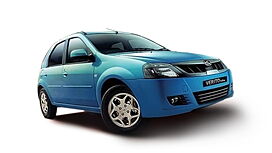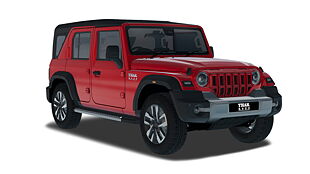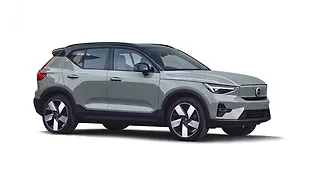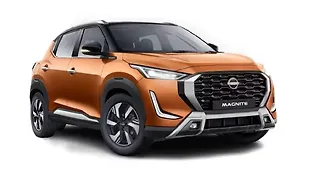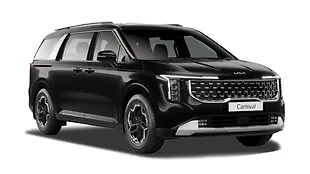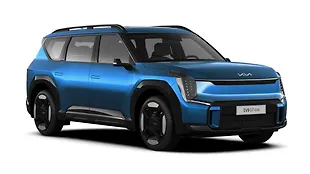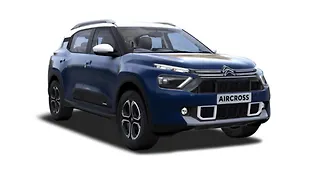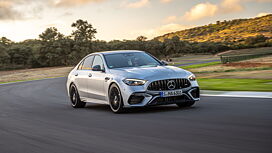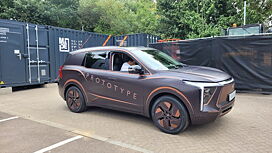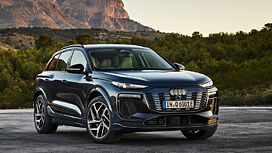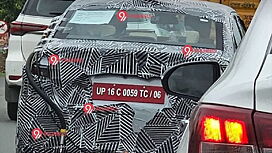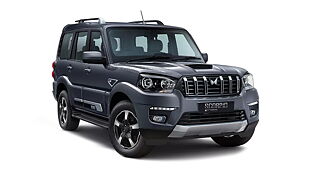Introduction

It isn’t often that a car confuses us. All new launches in particular segments want to cater to the same audience – and when that audience is the biggest in car sales in India, it is quite clear what they want. Because the requirements are so specific, we see a particular type of car being offered, and then the competition either catches up or takes one step ahead. Not the Verito Vibe, however; it seems to be marching to a different beat. But it is worth the money?

Exterior

The Verito is a mix of the original Verito and an all-new rear, just like a lot of hatch/sedan twins like the Swift and Indigo. Head on, it looks exactly like the Verito sedan, with a slightly odd combination of straight edges and muscular creases on the bonnet and bumper.

Move to the side, however, and the impressions change. The wheel design is genuinely good looking, but the flared wheel arches and strong shoulder lines can do little to change the impression that this is a slightly boring-looking car. Walk around to the rear three-quarter and there is a sudden transformation to a real good-looking car – the design of the rear and the tail-lamps seems to be inspired by the second-generation European Ford Focus, and that is no bad thing.

The shape is unique in the Indian car market, and it gives the impression of the Vibe being a large hatchback with the best-looking derriere since the Chevy SR-V exited stage left all those years ago. Mahindra has uncharacteristically kept badging to a minimum, and only two horizontal chrome strips adorn the front and rear. This does not in any way detract from the car’s looks – if anything, the restraint adds to the car’s class.

Interiors

The interior of the Verito Vibe is unchanged from the sedan – if you’ve sat in a Logan, you’ll already know how much space and comfort is on offer. It is also one of the few hatchbacks that can truly seat five adults in comfort. The layout of the controls is carried over from the sedan, meaning that the power window switches are placed on the driver’s side door, the dials are clear and informative, and everything is where it is supposed to be, well within reach of the driver.
I still would like telescopic adjustment for the steering system, considering there is so much legroom. This would make it a shoo-in for tall people who drive themselves. The plastics look and feel a little on the hard-wearing, low-cost side, but it is a big step ahead from what was originally on the Logan. There are innovative storage spaces like the bottle-holder above the glovebox and the cubby-holes between the front seats, but it lacks adequate storage space for the rear, something that should be addressed considering this is a car that will be looked at very closely by backseat occupants.

Coming back to the front of the car, the center console houses an audio system that is quite capable – it even has iPod connectivity – but it simply doesn’t look the part. Audio quality is merely okay, not the best in class.

The air-con controls are quite different to what we’re used to in the class, and the chrome accents for the controls add a premium look to them. The recirculate and heater buttons have surprisingly good tactile feel – they feel very different from the controls mounted on the steering column. There is no climate control available, but the air-con is more than capable of handling the hottest day of summer with full occupancy in the cabin.

The seats are very supportive and well bolstered for comfort over long drives, but Mahindra has opted not to offer a rear armrest – again, something that would have elevated it significantly because of that large rear bench. The boot is not as large as the cavernous 500+ litres of the sedan, but it is a 330-litre boot. The reason it cannot offer as much boot space as its rivals lies in the measurements of the cabin – it has the longest wheelbase (and therefore seating room) of the bunch, and therefore boot space has had to be sacrificed to get under the 4-metre length required for a tax benefit and a competitive price.

It isn’t the small space figure that worries us; the Vibe is truly a sedan – despite the appearance of a hatchback, the bootlid is just the vertical metal bit and it is hinged below the rear glass. This makes it difficult to get heavy or big objects in and out of the boot. I wondered how the spare wheel would fit – and discovered that it is hung under the boot floor like in a Xylo, Innova or Tavera. Changing a wheel might not be the most pleasant experience with the Vibe, especially in the monsoon, if you have to access the spare tyre from under the boot floor on the outside.

Engine and transmission

The Vibe is available with just one engine option – the 1.5-litre K9K diesel that we have seen in so many other cars mated to a five-speed manual gearbox. For the Vibe it offers 64PS and 160Nm. It isn’t a very powerful state of tune, but that is also why its ARAI fuel efficiency claim is 20.8kmpl. The engine is a little noisy, but it doesn’t have any vibes to speak of. It’s best to ride out the torque available from as little as 1800rpm and upshift early rather than wring it out to the redline. The gearshifts are positive and the throws are slightly long, but they slot in without effort. The ratios are well matched to city driving, but the car feels a little busy out on the highway – this is merely an effect of the low power figure; the Vibe can hold triple-digit speeds without much effort, but anything over 100kmph will probably see the fuel consumption go up significantly.
Ride and handling

The Vibe’s suspension settings remain unchanged from the sedan’s, so it exhibits all the same characteristics. It has a very pliant ride, which leads you to believe that it will not handle well, and when you tiptoe through a corner, you discover that beyond the body roll lies quite a lot of grip. And beyond that grip lies very progressive understeer.

Even the steering contributes to this feeling – it is a little vague when pointing straight and feels unreasonably heavy sometimes at parking speeds, but push the car through a corner and it weighs up really well, communicating exactly what is happening under the front wheels and elevating driver confidence to the point where you can find the understeer at the limit. It isn’t the best driver’s car in its segment, but it certainly gets our vote for the best balance between ride and handling.
Verdict

The Verito Vibe is a puzzling car – it offers great space in the cabin but a boot that is not very practical. The plastic quality isn’t the best in its segment, but the ride and handling compromise certainly is, even though it isn’t even trying to be a driver’s favourite. It retails at approximately Rs 6.6 lakh, ex-showroom, which means that it competes directly with the likes of the diesel Figo. Of course, it being a Mahindra means that spares will be inexpensive, and service will be available in most, if not all, corners of the country. If you value cabin space and the ability to carry five full-sized adults in comfort but don’t need brand value or a boot, the compact Verito will certainly give you good Vibes.


